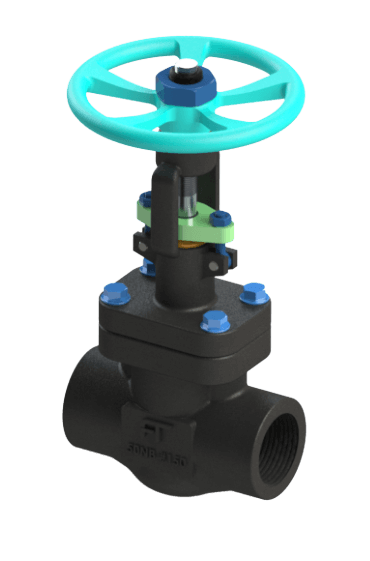The Crucial Role of Proper Installation and Operation of Forged Globe Valves
Forged globe valves are integral components in various industrial systems, ensuring the smooth and efficient flow of fluids while offering precise control over flow rates. However, their effectiveness relies heavily on proper installation and operation practices. In this article, we delve into the importance of these aspects, highlighting their impact on performance, safety, and longevity.
Understanding Forged Steel Globe Valves:
Before delving into installation and operation, it's crucial to grasp the fundamentals of forged globe valves. These valves feature a globe-shaped body with an internal mechanism that regulates flow. They are commonly used in applications requiring precise flow control and shut-off capabilities, such as in refineries, chemical plants, and power generation facilities.
 |
| Forged Steel Globe Valves |
Importance of Proper Installation:
Proper installation of forged globe valves is paramount to their functionality and longevity. Here's why:
Sealing Integrity: During installation, ensuring a proper seal between the valve and piping system is essential to prevent leaks. Improper sealing can lead to costly downtime, environmental hazards, and safety risks.
Alignment: Correct alignment of the valve with the piping system is crucial for optimal performance. Misalignment can cause excessive stress on components, leading to premature wear and reduced efficiency.
Torque Application: Tightening bolts or nuts with the correct torque ensures that the valve is securely attached to the piping system. Over-tightening can damage the valve body, while under-tightening may result in leaks or improper operation.
Orientation: Installing the valve in the correct orientation, such as ensuring the flow direction matches the arrow on the valve body, prevents flow disruptions and enhances operational efficiency.
Support: Providing adequate support for the valve to prevent excessive vibration and stress is essential. Improper support can lead to valve failure and compromise system integrity.
Operation Best Practices:
Once installed correctly, proper operation is essential to ensure the continued performance and reliability of forged globe valves. Consider the following best practices:
Regular Inspection: Scheduled inspections help identify potential issues such as leaks, corrosion, or worn components. Early detection allows for timely maintenance or replacement, minimizing downtime and preventing costly repairs.
Proper Lubrication: Lubricating the valve's moving parts according to manufacturer recommendations reduces friction, extends service life, and ensures smooth operation. Using the wrong type or amount of lubricant can cause damage and impair performance.
Correct Operating Procedures: Following established procedures for valve operation, including opening, closing, and adjusting flow rates, is critical. Improper manipulation can lead to valve damage, system instability, or safety hazards.
Monitoring Performance: Monitoring the valve's performance parameters, such as pressure, temperature, and flow rates, helps detect abnormalities or deviations from expected values. Prompt action can prevent potential failures and maintain system efficiency.
Training and Education: Providing training to personnel responsible for operating forged globe valves ensures they understand proper procedures, safety protocols, and troubleshooting techniques. Well-trained operators contribute to efficient valve performance and overall system reliability.
Benefits of Compliance:
Adhering to proper installation and operation practices offers several benefits:
Enhanced Safety: Properly installed and operated valves minimize the risk of accidents, leaks, and equipment failures, promoting a safer working environment.
Improved Efficiency: Well-maintained valves operate more efficiently, optimizing fluid flow control and reducing energy consumption.
Extended Service Life: Following recommended practices extends the service life of forged globe valves, reducing replacement frequency and associated costs.
Regulatory Compliance: Compliance with installation and operation standards helps organizations meet regulatory requirements and industry standards, avoiding penalties and legal issues.
Conclusion:
API 602 Forged Steel globe valves play a critical role in industrial fluid control systems, but their effectiveness depends on proper installation and operation. By prioritizing adherence to established practices, organizations can maximize valve performance, ensure safety, and prolong service life. Investing in proper installation, maintenance, and training not only mitigates risks but also contributes to overall operational efficiency and cost-effectiveness.




No comments:
Post a Comment